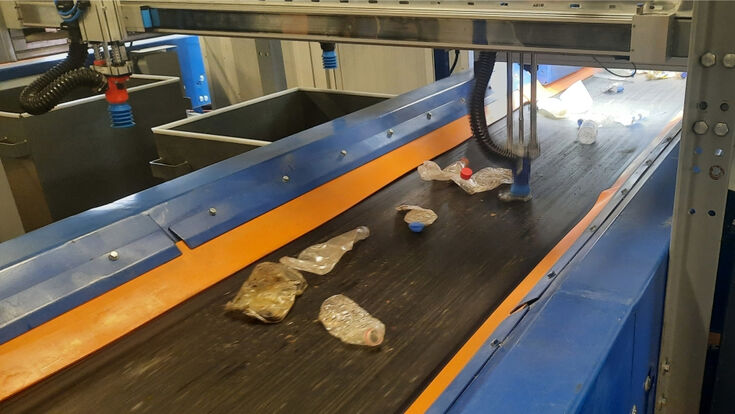Reclaim Waste Melbourne: Proven Techniques for Reliable Liquid Waste Removal
Wiki Article
Fostering Resource Efficiency and Environmental Management Through Fluid Waste Removal Programs
In the world of ecological stewardship, the administration of fluid waste stands as a critical time where source effectiveness and environmental defense assemble. With a lens of proactive engagement and critical insight, the landscape of liquid waste management introduces a tapestry of challenges and opportunities that beckon us to check out the course towards a greener and more lasting future.Importance of Fluid Waste Elimination
The relevance of liquid waste elimination depends on its vital function in maintaining ecological wellness and securing public well-being. Liquid waste, otherwise effectively taken care of, can pose major dangers to communities, water sources, and human wellness. Through reliable removal processes, hazardous compounds such as pathogens, pollutants, and chemicals are protected against from polluting the atmosphere and triggering harmful results.Proper liquid waste elimination likewise assists in stopping the spread of conditions and reducing the potential for groundwater contamination. By securely getting rid of fluid waste, the risk of waterborne illnesses and pollution-related wellness concerns is significantly decreased - Reclaim Waste. Furthermore, effective removal methods add to keeping the total sanitation and aesthetics of communities, consequently enhancing the high quality of life for locals
Additionally, fluid waste elimination plays an essential function in supporting lasting growth and making certain compliance with ecological laws. By adhering to correct waste management services, protocols and markets can reduce their ecological impact and demonstrate corporate obligation. Eventually, buying robust fluid waste elimination programs is essential for promoting ecological stewardship and fostering a much healthier, safer future for all.

Benefits of Reliable Disposal
Effective disposal of fluid waste not just safeguards ecological health and wellness and public wellness but additionally yields many benefits that prolong beyond prompt control steps. One vital benefit of efficient disposal is the decrease of pollution in water bodies and dirt. By properly taking care of fluid waste, the risk of contamination lowers, protecting ecological communities and protecting biodiversity. Additionally, reliable disposal practices add to resource preservation. With processes like reusing and energy recuperation, useful resources can be extracted from fluid waste, advertising sustainability and decreasing the pressure on raw materials. Furthermore, adopting reliable disposal techniques can bring about set you back financial savings for neighborhoods and companies. By optimizing waste management procedures, organizations can simplify operations, minimize disposal costs, and possibly generate revenue through the sale of recycled materials. In general, the advantages of effective fluid waste disposal are multifaceted, incorporating environmental protection, resource performance, and economic benefits.Technologies for Waste Treatment
Making use of innovative modern technologies for waste therapy plays a vital duty in ensuring the effective management and risk-free disposal of liquid waste. One of the essential innovations employed in liquid waste treatment is biological therapy. This technique uses bacteria to damage down organic matter in the waste, converting it right into safe byproducts. An additional typical modern technology is chemical treatment, where chemicals are contributed to the waste to reduce the effects of unsafe parts or precipitate pollutants for elimination. Physical treatment approaches, such as filtering and sedimentation, are likewise extensively used to divide solids from liquid waste.Additionally, thermal therapy techniques such as incineration can be utilized for the complete destruction of hazardous parts in liquid waste. Overall, the assimilation of diverse treatment technologies makes sure extensive and environmentally friendly administration of fluid waste.
Role of Laws and Conformity
In the world of fluid moved here waste management, adherence to governing structures and conformity requirements is extremely important for guarding ecological health and sustainability. Rules play a vital duty in controling the correct handling, treatment, and disposal of liquid waste to avoid harm to environments and human wellness. By establishing clear standards and criteria, governing bodies make sure that companies and individuals included in fluid waste administration run in an eco accountable fashion.Conformity with these laws is not only a legal need yet likewise an honest obligation to protect the setting for future and present generations. It entails applying ideal techniques in waste collection, transportation, disposal, and therapy to reduce ecological effect and promote source efficiency. Non-compliance can cause fines, lawful activity, and reputational damages for companies, highlighting the relevance of maintaining regulative standards.

Future Patterns in Waste Administration

Another essential trend in waste monitoring is the adoption of innovative data analytics and fabricated intelligence to enhance waste collection routes, enhance sorting procedures, and enhance total operational performance. These modern technologies allow waste management business to make data-driven decisions, causing cost savings and environmental benefits.
In addition, there is a growing focus on the development of decentralized waste monitoring systems, such as onsite treatment facilities and mobile waste processing units. read here These systems offer flexibility and scalability, enabling extra efficient waste handling in diverse environments.
Final Thought
In verdict, cultivating resource performance and environmental protection with liquid waste removal programs is important for lasting development. Effective disposal approaches, progressed technologies for waste treatment, and rigorous guidelines play key functions in decreasing environmental influence. Looking ahead, constant development and enhancement in waste management techniques will be vital for dealing with the growing difficulties of liquid waste disposal.In the realm of environmental stewardship, the management of liquid waste stands as an essential juncture where resource performance and ecological defense converge (Reclaim Waste).Making use of sophisticated innovations for waste treatment plays a critical function in making certain the efficient monitoring and risk-free disposal of fluid waste.In the realm of liquid waste administration, adherence to regulative structures find more information and compliance criteria is paramount for securing ecological wellness and sustainability.In conclusion, promoting resource effectiveness and ecological defense with liquid waste elimination programs is essential for lasting advancement. Looking in advance, continual technology and renovation in waste management techniques will certainly be essential for addressing the expanding obstacles of fluid waste disposal
Report this wiki page